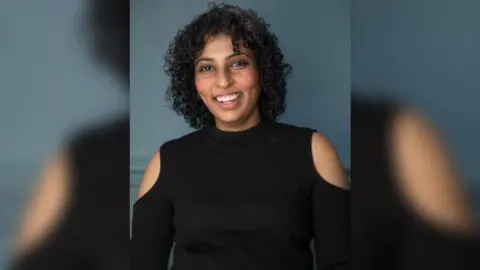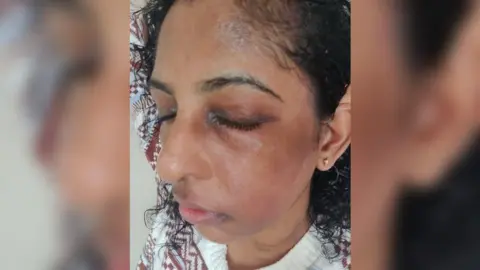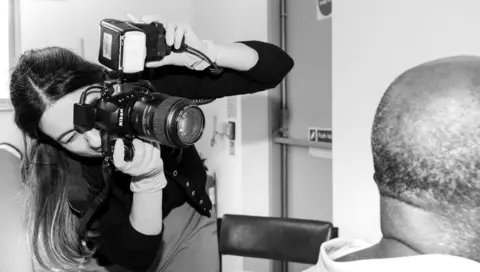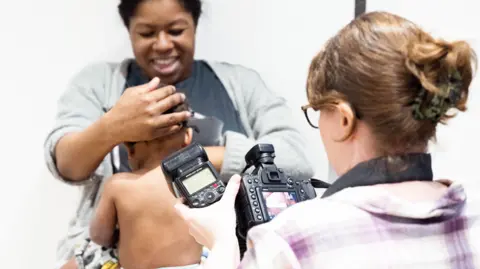The photos that could reduce misdiagnoses for minorities
 Vinithra Giridharan
Vinithra GiridharanThe creators of a library of medical photographs featuring people from different backgrounds hope the resource will continue to grow.
The project, led by a team from the University of the West of England (UWE), aims to increase the visual representation of minority groups in healthcare images to reduce the number of misdiagnoses.
Some 150 volunteers in the South West have been photographed and the results will be freely available to all healthcare professionals.
"We really want this image library to grow and to be a centralised resource," said Debbie Hubbard, associate director at UWE and project lead.
Medical conditions such as eczema, psoriasis and jaundice often appear differently based on skin tone.
However, many healthcare images primarily feature lighter skin tones, leading to misdiagnoses for those with darker skin.
 Vinithra Giridharan
Vinithra GiridharanVinithra Giridharan volunteered to be photographed after she spent two years trying to get her eczema correctly diagnosed and treated.
"I did not have a really great experience in the diagnosis process and then I had a really bad two years and had to go through a lot in order to get a place in the NHS system," she said.
"The project is actually answering a really big challenge in the NHS right now.
"I volunteered to give my images so that it's useful for medical professionals to identify early stages of eczema, and for when it worsens."
She said having eczema had taken a toll on her life and she now wanted to help create more awareness about the condition.
Six photoshoots took place in Bristol while two GP surgeries, Lawrence Hill Health Centre and Horfield Health Centre, also conducted photo sessions to contribute to the growing collection of medical images.
 UWE Bristol
UWE BristolSince its launch two years ago, the project, called Reframe – Diversifying Images, has already made "substantial strides" towards its aims, according to Ms Hubbard.
These include creating a comprehensive catalogue of a wide range of medical conditions on diverse skin tones, particularly from under-represented communities including Black, Asian, LGBTQIA+ and people with disabilities.
"We want it to be available nationally and, ideally, globally, if possible," said Ms Hubbard.
"We're now in the process, once we get it launched, of encouraging medical illustration departments across the UK to continue contributing.
"So we're looking at collaboration with departments in London, Birmingham and all over the country."
A second strand of the project will involve photographing people who work in healthcare, to provide more diverse images of healthcare professionals.
 UWE Bristol
UWE BristolThe final phase of the project – a digital catalogue of all 3,000 images collected so far – is being launched on Monday.
"It will be widely available and it is going to be free, open-access," said Ms Hubbard.
"The point of this project was that there are no restrictions and we want everybody to be using these images. That is our hope."
Follow BBC Bristol on Facebook, X and Instagram. Send your story ideas to us on email or via WhatsApp on 0800 313 4630.
